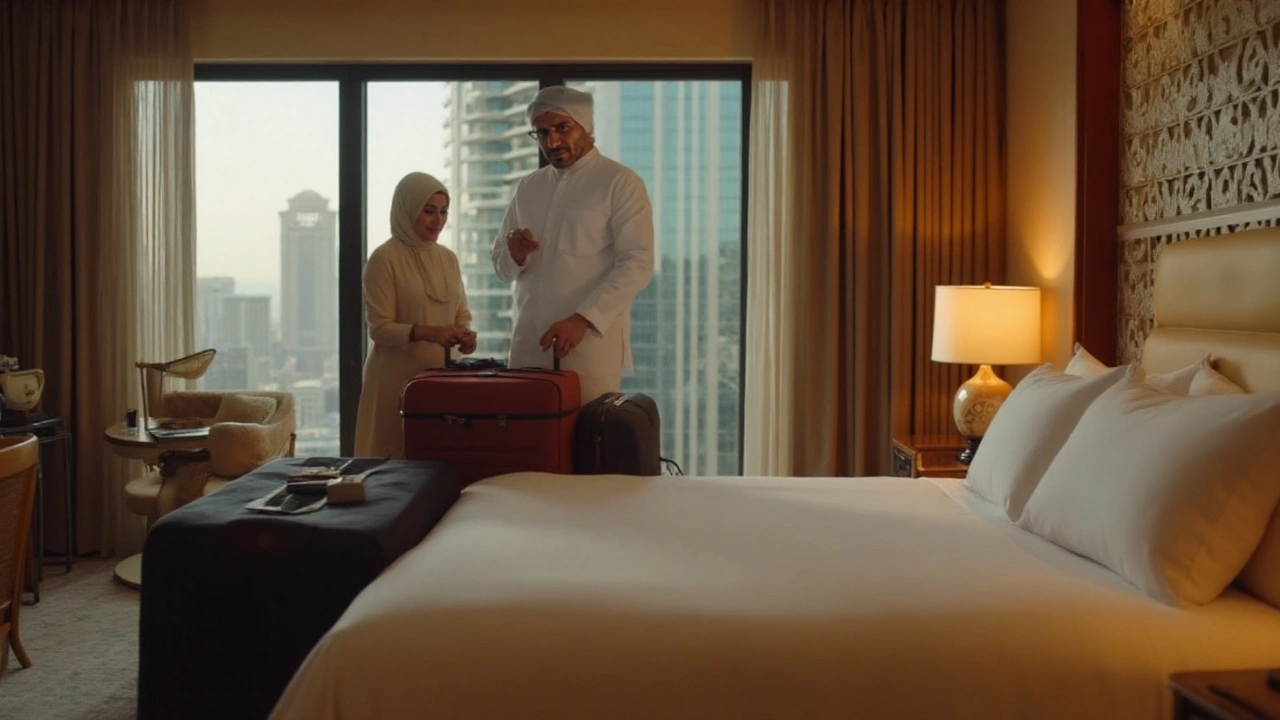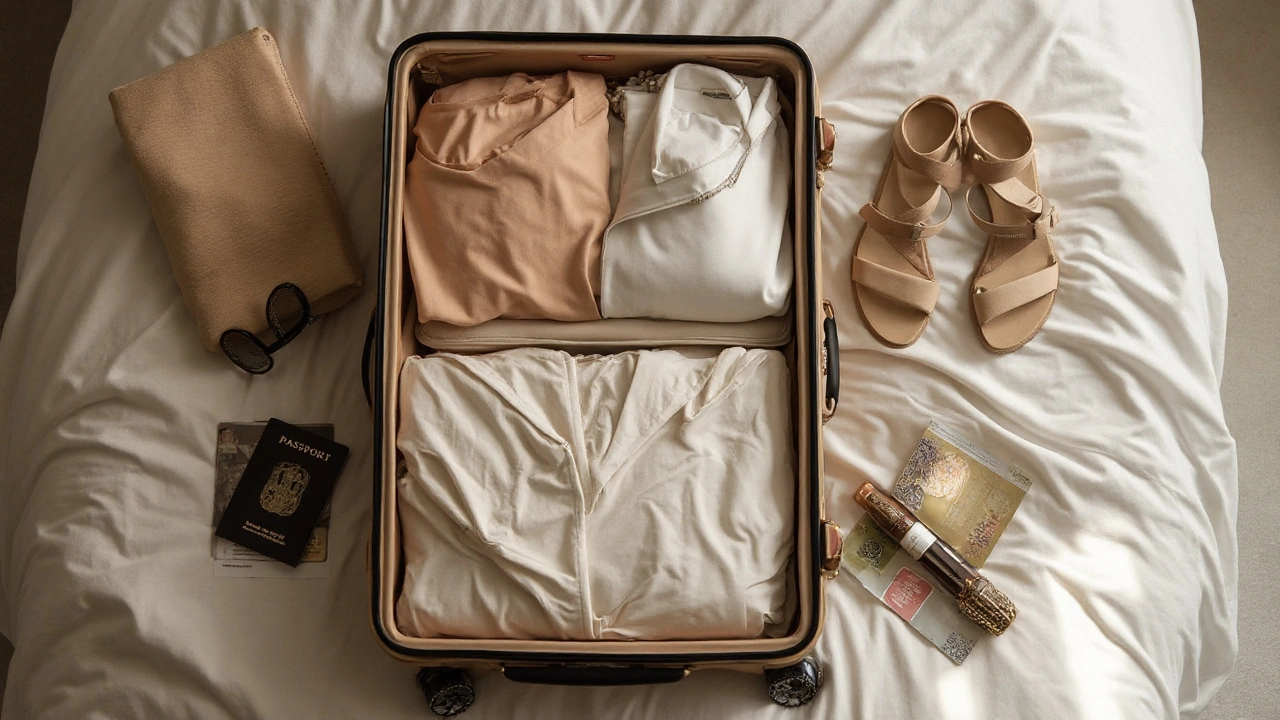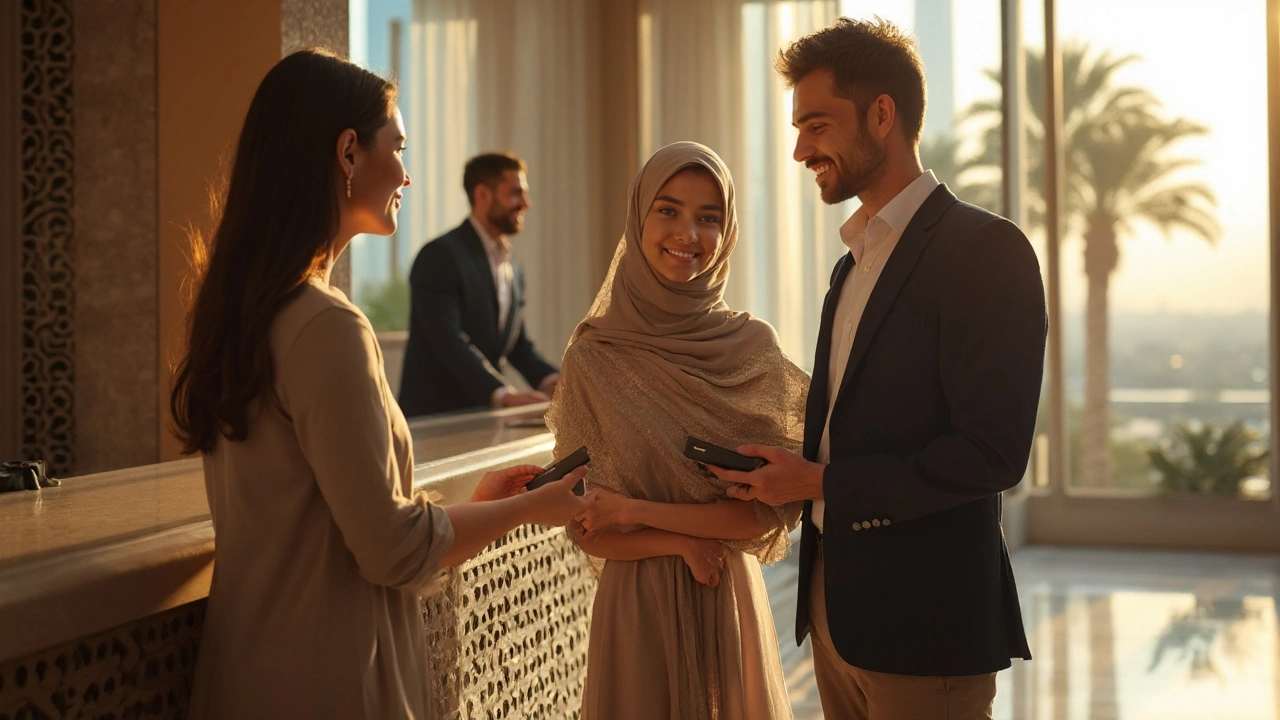Short answer first: Yes-unmarried couples can share a bed in Dubai in 2025. The law changed in late 2020, and mainstream hotels routinely host couples who aren’t married. The catch? You still need to respect public decency rules, carry ID, and understand a few nuances.
Cohabitation in Dubai is a legal status for people living or staying together outside marriage; since legal reforms in 2020 and the updated penal code in 2021, cohabitation is not a crime in the United Arab Emirates, including Dubai.
TL;DR
- Unmarried couples can share a hotel bed in Dubai; cohabitation was decriminalized in 2020 and reflected in the 2021 penal code.
- Hotels typically don’t ask for a marriage certificate; they do require passports at check-in.
- Public displays of affection (PDA) are restricted-keep it discreet, especially in malls, the Metro, and during Ramadan.
- Different emirates have different vibes; Dubai is relaxed compared with Sharjah (stricter) but laws are federal.
- If staff or security raise concerns, stay calm, show ID, and ask for a manager-it usually resolves fast.
Dubai unmarried couples are fine in most hotels now, but the line between private spaces and public behavior still matters.
What the law actually says now
Dubai changed a lot in the last few years. The UAE announced broad legal reforms in November 2020 that decriminalized cohabitation for unmarried couples. Those changes are captured in the updated penal code that took effect in 2022.
United Arab Emirates penal code (2021) is the current federal criminal law framework (Federal Decree-Law No. 31 of 2021) that modernized several personal conduct rules, including cohabitation.
United Arab Emirates is a federal country of seven emirates where criminal law is federal; Dubai applies these national reforms across its tourism sector.
What didn’t change? Public decency rules and respect for local culture. Kissing on a quiet beach? Risky. Hand-holding while crossing a road? Usually fine. The difference comes down to context, location, and complaints.
Public decency law in the UAE is a set of rules that prohibit acts considered indecent or offensive in public places; penalties can include fines or detention if conduct causes public offense or complaints.
Hotel rules in real life (2025)
Dubai thrives on tourism, and hotel policy reflects that. The standard experience: you show passports (or Emirates IDs), your room gets registered, and you enjoy your stay-no marriage certificate needed. This applies to resorts, city hotels, and hotel apartments.
Dubai is the most visited emirate in the UAE, known for liberal tourism practices, where hotels routinely accommodate unmarried couples.
Hotel accommodation in Dubai refers to licensed hospitality properties that must register all guests and check valid ID under local tourism regulations.
What a standard check-in looks like:
- You both hand over passports. Staff scan them for the tourism system.
- They confirm bed type-queen, king, or twins-and payment method.
- They give keys. That’s it. No marriage questions.
Exceptions exist. A few budget hotels or properties in more conservative areas may still ask awkward questions. It’s rare in Dubai, but if it happens, just say you booked one room and you both have passports. Ask for a manager if needed. Managers usually know the current rules and move things along.
Dubai Department of Economy and Tourism is the emirate’s tourism regulator that licenses hotels and holiday homes and requires guest registration with valid identification.
Holiday homes and Airbnb
Staying in a holiday home (what most of us call Airbnb) is also straightforward-again, ID and registration are key. Licensed hosts have a permit number and must submit guest details to the system. Good hosts ask for passport scans before or at check-in.
Airbnb is a global holiday home platform used in Dubai through licensed hosts; guests must provide ID for registration.
Two tips that help with smooth stays:
- Send your IDs in advance so the building security has you on the access list.
- Arrive during reasonable hours; some residential towers are strict at night about visitor access unless pre-registered.
How Dubai compares with other emirates
Criminal law is federal, but cultural enforcement varies a little by emirate. Dubai is the most relaxed for tourists, Abu Dhabi is similar, and Sharjah is more conservative, particularly on alcohol and dress.
| Topic | Dubai | Abu Dhabi | Sharjah |
|---|---|---|---|
| Cohabitation legality | Legal since 2020; standard practice in hotels | Legal; hotels similar to Dubai | Legal; but more conservative environment |
| Hotel policy for unmarried couples | Usually no questions; passports required | Same as Dubai | Some hotels may be stricter; still possible with ID |
| ID at check-in | Mandatory for all guests | Mandatory | Mandatory |
| PDA tolerance | Low; keep it discreet | Low; similar to Dubai | Very low; avoid PDA entirely |
| Alcohol rules | Legal for non-Muslim adults; served in licensed venues | Legal for non-Muslim adults; licensed venues | Dry emirate; alcohol largely banned |
| Dress expectations | Modest in malls/old districts; beachwear fine at resorts | Similar to Dubai | More conservative; cover shoulders and knees in public |
Abu Dhabi is the UAE capital with tourism rules similar to Dubai; hotels accept unmarried couples with ID.
Sharjah is a conservative emirate that restricts alcohol and expects modest dress; hotels may apply stricter guest policies.
PDA, privacy, and where people get into trouble
Most problems happen outside the hotel room. If your affection makes a scene or prompts a complaint, you could face questions. Keep physical affection subtle in malls, parks, the Metro, and taxis. At resorts and beach clubs, the vibe is looser-still, save romantic moments for private spaces.
Dubai Police is the emirate’s law enforcement authority that responds to public complaints, including indecency and disturbances.
Think of it like this: your hotel room is your private space; everywhere else is shared space where local norms apply. If someone complains, officers will usually ask for your IDs and look for a quick resolution. Being polite and cooperative goes a long way.
Ramadan etiquette for couples
During Ramadan, the city’s rhythm changes. You’ll find quiet mornings, late dinners, and special iftars. It’s also a time to be extra discreet with affection and dress-especially in daytime public areas.
Ramadan is the Islamic month of fasting and reflection; in the UAE, it brings quieter days and more conservative public norms.
- Don’t kiss or cuddle in public, full stop.
- Avoid eating and drinking in public during daylight hours out of respect (rules for non-Muslims vary by venue; many places now screen off dining areas).
- Dress a touch more modestly in malls and markets.
Documents to carry and small admin details
The one document you always need is your passport. Hotels and holiday homes must register every guest, and many buildings scan IDs at the door. If you’re a resident, bring your Emirates ID.
Tourist visa to the UAE is an entry permission that, for many nationalities, is granted on arrival; validity ranges commonly from 30 to 60 days with possible extension.
- Minimum check-in age varies; 21 is common for the main guest.
- Hotels may register a maximum of two adults per room-triple rooms or extra beds are a separate charge.
- No need to carry a marriage certificate, but having a photo of it can calm a nervous junior staffer if you encounter one.
Common scenarios: what’s fine vs. what’s risky
These quick vignettes cover the gray areas people actually face.
- Fine: You and your boyfriend book a king-bed room at a Dubai Marina hotel, hand over passports, and check in. You’re tired, you sleep-no questions.
- Fine: You book a licensed holiday home and send passport scans in advance. Security waves you in because your names are on the list.
- Fine with caution: At a beach club, you hug for a photo. Keep it brief; full-on kissing can attract unwanted attention from families around you.
- Risky: Making out in a mall or in the back of a taxi. A complaint could bring staff or police.
- Risky: Yelling in a late-night argument on the street. Noise and disturbance complaints travel fast in high-density areas.

LGBTQ+ note
Same-sex relationships are sensitive in the UAE. While hotels register guests without asking the nature of your relationship, laws on same-sex intimacy are strict. If you’re a same-sex couple, book international hotel brands, avoid PDA entirely, and keep interactions low-key in public spaces. Private spaces (your room) remain private, but discretion is key to staying safe.
Etiquette cheat sheet for couples
- Book reputable, licensed accommodation.
- Carry passports; submit scans to holiday home hosts before arrival.
- Keep PDA private; hand-holding is usually fine, kissing isn’t.
- Dress modestly in malls and older districts; beachwear is for beaches and pools.
- During Ramadan, be extra discreet.
- If questioned, be calm, show ID, and ask for a manager.
Scripts you can use
- At check-in if a junior clerk hesitates: “We booked a king-bed room together. Here are our passports. Can you please complete the registration?”
- If a guard asks in a residential tower: “We’re registered guests in 2408. Our passports are on file with the host. Would you like to see the booking?”
- If a manager mentions ‘policy’: “We understand. The law allows unmarried couples to stay together. We’re happy to provide any IDs you need.”
Related concepts you’ll probably care about next
Dubai travel rules sit inside a bigger web of local norms. If you’re planning more than a quick weekend, these topics are worth a read:
- Alcohol service in licensed venues and delivery rules to hotels.
- Dress code for mosques (cover arms and legs; women cover hair).
- Photography in public (avoid taking photos of others without consent).
- Driving rules (speed cameras are everywhere; zero tolerance for drunk driving).
- Beach etiquette (family beaches vs. beach clubs).
Who says this-and how current is it?
The reforms were announced nationally in late 2020 and folded into the updated penal code (Federal Decree-Law No. 31 of 2021). Tourism rules are enforced by Dubai’s Department of Economy and Tourism, and hotels comply by scanning guest IDs. As a traveler in 2025, you’ll see these policies in action across major hotel brands and licensed holiday homes.
Federal Decree-Law No. 31 of 2021 is the UAE’s Crimes and Penalties Law that reflects the 2020 personal status and conduct reforms, including decriminalized cohabitation.
Practical do’s and don’ts
- Do book internationally known hotels or well-reviewed, licensed holiday homes.
- Do keep a digital copy of your passports and booking confirmations on your phone.
- Do keep affection private; think “friendly” in public.
- Don’t argue with staff; escalate politely to a supervisor if needed.
- Don’t carry alcohol in public outside licensed venues; use hotel bars or delivery to your room where permitted.
- Don’t post provocative public content on social media tagged to your precise location; unwanted attention is avoidable.
Edge cases and how to handle them
A hotel asks for a marriage certificate. Calmly say you’re traveling together, present passports, and ask to speak with a duty manager. If they persist and you’re tired of the conversation, swap to twin beds for the night and change hotels the next day. In Dubai, this is uncommon-but it’s an easy out if you hit a stubborn property.
Security knocks on your holiday home door about “visitors.” Show your booking, remind them you’re registered guests, and keep voices low. Hosts usually smooth this out once they confirm your details.
Police approach after a complaint. Be respectful. Present IDs. Explain you’re tourists on holiday and didn’t mean offense. In many cases, a warning ends it-assuming there isn’t more going on (like public intoxication or disorderly behavior).
What this article is part of
This sits in the travel-and-culture cluster: Dubai basics, law-for-tourists, hotel know-how, and etiquette. Nearby topics include dress codes, alcohol rules, Ramadan travel planning, and neighborhood guides (Marina vs. Downtown vs. Old Dubai). If you liked the clarity here, those are the natural next steps.
Marriage certificate is an official record of marriage; in Dubai hotels it is generally not required for check-in by unmarried couples since 2020 reforms.
Hotel apartments are licensed properties with kitchenettes and longer-stay amenities; they follow the same guest ID registration rules as hotels.
Frequently Asked Questions
Can I sleep in the same bed as my boyfriend in Dubai?
Yes. Since the UAE’s 2020 reforms (reflected in the 2021 penal code), cohabitation for unmarried couples is not a crime. Dubai hotels commonly host unmarried couples in the same room and bed. You’ll need valid ID at check-in, and you should avoid public displays of affection outside private spaces.
Do hotels in Dubai ask for a marriage certificate?
Typically no. Mainstream hotels don’t require proof of marriage for couples sharing a room. They do require passports (or Emirates IDs). If a staff member asks, politely request a manager-most managers understand the current rules and won’t insist.
Is public affection illegal in Dubai?
Public displays of affection are restricted. Hand-holding is usually tolerated; kissing and cuddling are not, especially in malls, on the Metro, and during Ramadan. Complaints can trigger police intervention. Keep affection private to avoid issues.
What ID do I need to check into a Dubai hotel?
Passports for all guests are standard. Hotels scan IDs for the tourism system. If you’re a resident, bring your Emirates ID. Without ID, check-in is usually impossible.
Are holiday homes (Airbnb) safe for unmarried couples?
Yes-use licensed listings. Hosts must register guest details with the authorities, so they’ll ask for passports. If building security asks, show your booking and ID. It’s common practice and works smoothly when you pre-register.
Is it different in Abu Dhabi or Sharjah?
Cohabitation is legal across the UAE, so unmarried couples can share rooms in all emirates. Dubai and Abu Dhabi feel similar; Sharjah is more conservative, especially on alcohol and dress. Expect stricter hotel interpretations in Sharjah, but ID-based check-in is still the norm.
What about same-sex couples?
Hotels register guests without asking about relationships, but same-sex intimacy is illegal in the UAE. If you travel as a same-sex couple, choose international brands, avoid PDA entirely, and keep interactions discreet in public. Private hotel rooms remain private; discretion is key.
Could I still get in trouble even if cohabitation is legal?
Yes-if your behavior breaches public decency (e.g., overt PDA, drunken disorder), or if there’s a complaint. The safest approach is simple: keep affection private, carry ID, be polite if questioned, and avoid arguments in public spaces.

Next steps and troubleshooting
- If a property pushes back on bed sharing: ask for the duty manager, restate that you’re registered guests, and present passports. Offer to switch to twin beds for the night if you need a quick fix, then change hotels later.
- If a holiday home host is slow to register you: send passport scans ahead, message them to confirm building access, and ask for the tower’s access procedure. No access? Cancel within the platform’s policy and rebook a licensed place.
- If police become involved after a complaint: stay calm, show ID, explain you’re tourists, and cooperate. Most cases end at a warning unless other offenses are involved.
- Traveling during Ramadan: book resort venues for beach time, keep daytime public conduct modest, and enjoy iftar events in the evening.
Note: This guidance reflects policy and practice as of 2025 and is for general information, not legal advice. For updates, check announcements from the UAE Government Portal, Dubai Department of Economy and Tourism, and hotel brand policies.
Escort Dubai